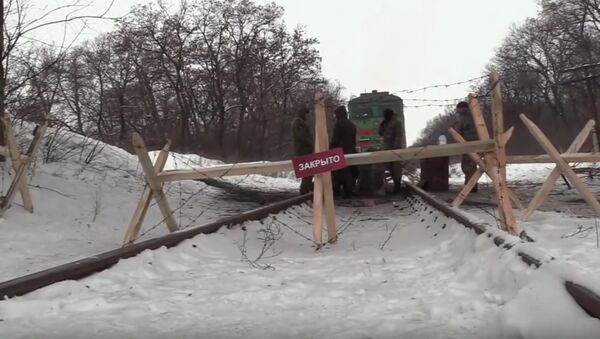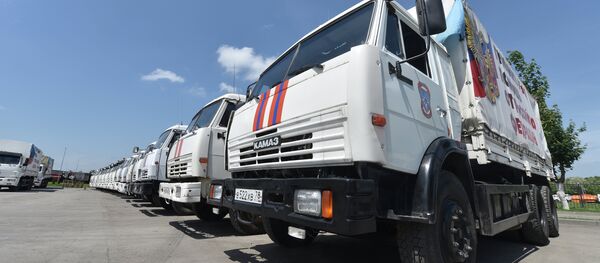"When you force the country to refuse from 1 percent of its GDP, it means that our country's economy will come up hundreds of billions short. Your actions are reckless," Groysman said at a Q&A session in parliament, addressing lawmakers backing the blockade.
According to Groysman, the blockade strategy contradicts Ukraine's national interests.
Earlier in the week, Ukraine's central bank, taking into account the newly imposed trade blockade, reviewed its economic growth forecast and lowered the growth rate from 2.8 percent to 1.9 percent. Meanwhile, the state budget adopted by parliament is based on a 3-percent GDP growth in 2017.
In late January, following the escalation of tensions in the southeastern part of the country, a group of former participants of Ukraine's military operation in Donbass, including several lawmakers, blocked traffic on several segments of freight rail lines running from the territories uncontrolled by Kiev. The blockade led to irregularities in supplies of anthracite coal from Donbas, subsequently leading to power shortages in Ukraine, and prompted Kiev to declare an energy emergency.
On March 17, Ukraine's President Petro Poroshenko enacted the decision of the National Security and Defense Council of Ukraine to sever all transport connection with the self-proclaimed people's republics of Donetsk (DPR) and Luhansk (LPR) until a ceasefire was fully established in the region. Additionally, the president made provisions to return control of enterprises from DPR and LPR authorities back to Ukraine.
Never miss a story again — sign up to our Telegram channel and we'll keep you up to speed!




